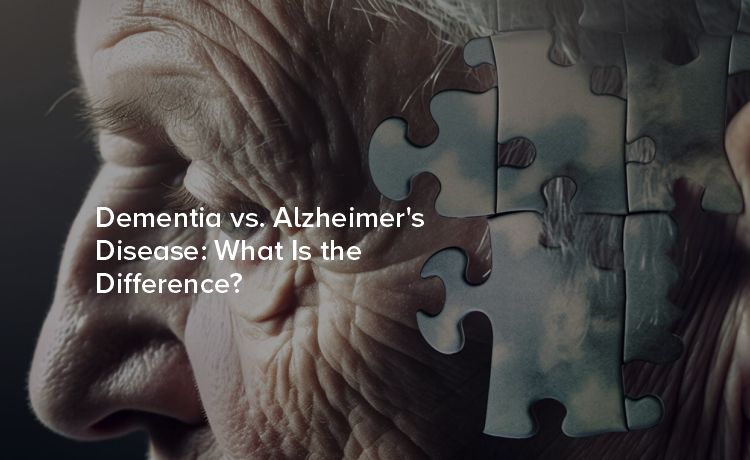
In our aging society, the distinction between dementia and Alzheimer's disease is often muddled. While both terms are frequently used interchangeably, they refer to different conditions.
Dementia is an umbrella term for a range of cognitive impairments that interfere with daily life. Unlike other diseases, dementia is not a specific diagnosis, but a syndrome characterized by a decline in memory, reasoning, and communication skills.
There are several types of dementia, including:
Alzheimer's Disease
Alzheimer's disease is the most common type of dementia, accounting for 60-80% of cases. It progresses through stages, starting with mild memory loss and advancing to severe cognitive impairment.
Vascular Dementia
Vascular dementia is the second most common type. It results from reduced blood flow to the brain, often after a stroke. Symptoms may include impaired judgment and difficulty planning.
Lewy Body Dementia
Lewy body dementia is caused by abnormal protein deposits in the brain. It is characterized by fluctuating cognitive abilities, visual hallucinations, and motor symptoms similar to Parkinson's disease.
Frontotemporal Dementia
Frontotemporal dementia affects the frontal and temporal lobes of the brain, leading to changes in personality, behavior, and language skills.
Recognizing early signs of dementia is crucial for timely intervention. Common indicators include:
Alzheimer's disease (AD) is a progressive neurological disorder that primarily affects memory and cognitive function. It is the most common cause of dementia.
Alzheimer's disease progresses through three main stages:
While the exact cause of Alzheimer's is unknown, several factors are believed to contribute to its development:
The early signs of Alzheimer's disease can be subtle and may be mistaken for normal age-related changes. Common early symptoms include:
Understanding the relationship between dementia and Alzheimer's disease is essential for recognizing and addressing cognitive decline. Here are some key points to consider:
Accurate diagnosis is critical for determining the appropriate care and treatment strategies for individuals experiencing cognitive decline. Healthcare professionals utilize a combination of approaches to assess cognitive function and differentiate between dementia and its various types, including Alzheimer's disease. Some common diagnostic methods include.
During the initial evaluation, healthcare providers will gather comprehensive information about the individual's medical history and the specific symptoms experienced. This may involve discussions with family members or caregivers who can provide additional context about changes in behavior and cognitive function.
A variety of tests are designed to assess cognitive abilities, memory, and problem-solving skills. These assessments help identify areas of impairment and distinguish between normal age-related changes and more serious cognitive decline.
Imaging techniques, such as magnetic resonance imaging (MRI) and computed tomography (CT) scans, may be used to visualize the brain's structure and identify any abnormalities that could contribute to cognitive impairment.
Blood tests may be conducted to rule out other potential causes of cognitive decline, such as vitamin deficiencies or thyroid disorders. Additionally, researchers are investigating the use of biomarkers in cerebrospinal fluid as a means to improve early diagnosis of Alzheimer's disease.
While there is currently no cure for dementia or Alzheimer's disease, several treatment options are available to help manage symptoms and improve the quality of life for affected individuals and their families. Treatment approaches may vary based on the specific type of dementia, severity of symptoms, and individual needs. Some common options include.
Several medications are approved for the treatment of Alzheimer's disease and some other types of dementia. These medications aim to enhance cognitive function, slow disease progression, and alleviate specific symptoms. Some commonly prescribed medications include:
In addition to medication, a variety of non-pharmacological interventions can be beneficial for individuals with dementia and their caregivers. Some effective approaches include:
Living with dementia or Alzheimer's disease presents unique challenges for affected individuals and their families. However, strategies can enhance the quality of life for everyone involved. Here are some suggestions to improve daily living experiences.
Creating a supportive and engaging environment is crucial for individuals with dementia. Consider implementing the following strategies:
Effective communication is essential for maintaining connections with individuals living with dementia. Employing specific strategies can improve understanding and reduce frustration:
Understanding the differences between dementia and Alzheimer's disease is crucial for individuals, families, and caregivers navigating cognitive decline. While dementia is an umbrella term encompassing various cognitive impairments, Alzheimer's disease is the most common and well-known form of dementia.